- Home
- Matt Rogers
Ghosts Page 2
Ghosts Read online
Page 2
Then there was this component of his training. He walked the final hundred feet to the administrative building at the front of the shooting range, shaking his limbs out, and was met by an old guy in his seventies with a permanent stoop and heavily wrinkled skin. Roy owned the range, and a discreet financial arrangement King had made with him a month previously allowed total privacy when he was shooting each morning.
Because of the unavoidable questions that would come from shooting in front of civilians.
Like, How the hell are you doing that? Where did you get your training? What sort of phenom are you?
It would raise questions, and questions were the last thing King needed. So he nodded graciously to Roy, went past the man, and stepped through a door sporting a sign that read: CLOSED.
He busied himself within the facility, collecting the SIG Sauer P226 MK25 he used every morning. He’d relied on the P226 multiple times in the field, and it had saved his life an equal number of times. The MK25 variant sported several features that had made the P226 the SEALs’ weapon of choice for decades, so that’s what King used. He grabbed a full belt of fifteen-round magazines strung together by a nylon cinch.
Then he went out to the range itself — still sweating, his heart rate not fully settled, which was an obstacle he deliberately added — and unloaded twelve consecutive magazines at the targets.
One hundred and eighty rounds.
He didn’t miss once.
Unsurprising, really. He rarely ever missed when his life was on the line, and that came along with all kinds of additional stressors like adrenaline and mortal fear. Here in the desert heat, with his heart pumping and his pores perspiring and the sun hot on his face, he might as well have been half-asleep. It was nothing compared to the reality of combat.
It was as natural as breathing.
He went back inside and returned the SIG to its rack, then left the building through the same door he’d entered. Roy got to his feet, leaving the shade, and shook King’s hand on the way past.
When the old man stepped inside, he turned the sign to read: OPEN FOR BUSINESS.
King didn’t see that.
He was already running.
Four miles back, tracking it all on his watch, measuring his heart rate, as well as its variability and the total calories burned. He paid careful attention to every metric to avoid overtraining. There was nothing worse than being rendered bedridden, so fatigued that simply walking to the kitchen was an effort. He’d been there before. Dozens of times, actually, back during his testosterone-fuelled youth.
Now he was smarter, faster, better.
All from knowing his limits.
Slow is smooth, smooth is fast.
Today he felt good, and his metrics were well within normal parameters, so he added a short loop to his return trip. He ran further east into Summerlin South, no doubt a sight to behold to the housewives of suburbia. He sensed eyes on him the whole way down Spotted Leaf Lane, but the people observing him were the furthest thing from a threat. The men wondered what sort of regime he followed, and the women wondered what he’d look like with his clothes off.
He ran past Spotted Leaf Park, a familiar expanse with a basketball court and two tennis courts positioned in front of a sea of green. Between two gazebos was a row of park benches. Most of them were empty.
One had a blonde woman seated on it.
Still running, King ended up looking twice.
Later, he’d realise that what roped him into the next violent phase of his life was a simple double-take.
2
The first thing King had noticed out of the corner of his eye was the mane of blond hair.
He also caught the flash of sparkling blue eyes.
Subconsciously, he likened the features to Violetta.
Momentarily he wondered what she was doing all the way out here, seated on a park bench, watching him run past. So he looked over and saw it wasn’t his girlfriend, but a woman who looked just like her.
No harm done.
He nodded politely to her, and returned his focus to the street ahead.
Then the double-take.
Because the woman was paler than Violetta, and he could tell it wasn’t her usual skin tone. She was white as a sheet. There were deep bags under her blue eyes, and stress lines on her forehead. She was still naturally gorgeous, but beat down, defeated. He had enough experience dealing with people hammered by the cruelty of injustice. She was caught in its grip, and she couldn’t see a way out.
One might consider it strange that King was able to read all this from a single glance.
They hadn’t been through what he’d been through.
He changed his trajectory, jogged over to the park bench, and sat down at the other end. He busied himself with his watch, ending the run at 4.56 miles, falling well short of the six he’d planned on the return trip. A disruption to his routine, but this took priority.
She stared straight ahead. Maybe trying to pretend he wasn’t there.
He turned to her.
She didn’t meet his gaze.
He said, ‘What’s wrong?’
She bowed her head.
Closed her eyes.
Fought back tears.
He said, ‘I’m not going to hurt you.’
She scoffed, and the eyes flew open.
The blue irises turned to face him. They were thick with cynicism.
She said, ‘You know, I don’t think I’d care if you did.’
Her voice still had defiance in it, but it was overshadowed by fatigue. King identified it. It was the hopelessness of trying to fight something for so long to no avail. He’d seen the same symptoms a hundred times over. Mainly in survivors of war, beat down and emotionally crippled by the horrors they’d witnessed. Like, We’re capable of this sort of evil? What’s the point of anything if this is who we truly are?
‘Why’s that?’ he said.
Another scoff.
She said, ‘Please leave me alone.’
He shrugged. ‘Okay.’
Got up, restarted his workout on the digital watch face, and shook out his tightening quadriceps and hamstrings. She watched him, slightly bemused, maybe under the impression it was a performance.
Then he set off running.
She said, ‘Wait.’
He stopped, four strides from the bench. Turned around and looked at her. ‘Yes?’
‘What was that about?’
‘You can’t help someone who doesn’t want to be helped. Rule number one.’
‘You have rules?’
‘That was a turn of phrase. I don’t have a list, if that’s what you mean.’
‘What makes you think you can help?’
‘I like to think I’m in a position to help.’
Her wry smile returned. It was the furthest thing from a jovial expression. It was a smile of soul-crushing defeat. ‘Not this time.’
‘You haven’t even told me what it is.’
‘Why should I?’
He shrugged. ‘Maybe I can’t help. But consider the fact it might be worth telling me anyway. Just in case. What have you got to lose?’
She stared at him, chewing absent-mindedly on her lower lip.
He tapped his watch face. ‘If that’s all there is, I’ll get back to my workout…’
He started pivoting away.
‘Sit,’ she said.
He turned back. What anyone else might take as rudeness he understood as distraction. She was thinking of anything but being polite. It was the last thing on her mind.
Once again, he’d seen it all before.
But she seemed to realise.
‘Please,’ she added. ‘I’m sorry.’
‘Don’t apologise,’ he said, returning to the bench. ‘You haven’t done anything wrong.’
‘Apparently I have.’
He raised an eyebrow.
She said, ‘I’m getting sentenced tomorrow.’
‘Oh.’
She fell silent.
>
He said, ‘What’d you do?’
‘Nothing.’
‘That’s what everyone says.’
‘Which is why I told you to leave me alone. I don’t expect you to believe me. And I’m not in the mood for a lecture.’
‘And I told you I’ve been around. I can spot a lie from a mile away. So far, you haven’t told me one.’
She put her head in her hands.
He said, ‘What?’
She barely stifled a sob. It wracked her body, but didn’t spill out from between her lips. She suppressed it.
She said, ‘Call me jaded…’
‘Yeah?’
‘I refuse to believe you’re doing this for any other reason than to get in my pants.’
Now it was his turn to fall quiet.
She looked over at him. ‘Am I wrong?’
‘Completely.’
‘You’re a good-looking guy. You don’t need to be taking advantage of sad women on park benches.’
‘If that’s what you think this is, I’ll leave.’
‘No,’ she said. ‘I’m sorry. You’re fine. I’m just … looking for an excuse to sabotage this. Looking for an excuse to crush my last bit of hope. Easier that way than always thinking what-if…’
He didn’t respond. He admired the objectivity. Few were capable of that sort of self-analysis.
She said, ‘I need to know about you. Tell me something. Anything at all. You know, before I tell you my story. I need to know I’m not spilling my guts to a crazy person.’
King thought about it.
I’m getting sentenced tomorrow.
What did he have to lose either?
He said, ‘I have a long and storied history with an off-the-books wing of the military. I can’t go into more detail.’
The cynicism returned to her gaze.
Instantly he knew she was a victim of corruption.
He said, ‘I don’t work for them anymore. Myself and a few colleagues … we do our own thing. We left because parts of it were rotten to the core. I also have a long and storied history outside of official channels. Sometimes I do things for people. If the circumstances are right.’
She didn’t react.
He said, ‘I could be lying. I have no way to prove it to you.’
Silence.
He said, ‘Take my word, and I’ll take yours.’
She took a deep breath.
She said, ‘You’d better not be a lunatic.’
He shrugged. ‘There’s a fine line between genius and madness. Maybe you’re speaking to the right kind of lunatic.’
She took another deep breath.
She said, ‘My name’s Josefine.’
He said, ‘I’m Jason.’
She began her story.
3
Well, she tried.
She started with, ‘My daughter…’ then trailed off and broke down crying.
King sat still. Patient and understanding.
Between stifled sobs, she mouthed, ‘I’m sorry.’
King said, ‘Stop apologising.’
Josefine went quiet.
King said, ‘I get it. You haven’t been able to speak to anyone about this. You just tried to take the cap off the bottle and everything came out with it. Take your time. There’s no rush. I’ve got all morning, if that’s what it takes.’
Josefine cried, and cried, and cried.
Eventually the crying stopped.
She dabbed at her eyes with the sleeve of her blouse.
She said, ‘I’m—’ then cut herself off.
Remembering apologies weren’t necessary.
She took a breath deeper than any she’d taken before.
She said, ‘My daughter disappeared.’
‘When?’
‘Well, it would be … my God. Months ago now. There’s been the whole trial. And still … nothing. No sign of her.’
‘What are you going to prison for?’
‘Drug trafficking.’
‘Of?’
‘Cocaine.’
‘Were you trafficking cocaine?’
‘Do I look like a drug dealer?’
King said, ‘No offence, but you’d be surprised how normal most traffickers look.’
She stared at him, unabashed. ‘You know from personal experience?’
‘I’ve been around,’ King repeated. ‘Don’t take those words lightly.’
Josefine said, ‘I need to rewind.’
‘Like I said, I’ve got all day.’
She composed her thoughts, putting a closed fist over her mouth.
Then she took it away and said, ‘My daughter’s name is Elsa. Elsa Bell. She’s fifteen. Before she vanished, she fell in with the wrong crowd. She’d been hanging out with a friend from school — Melanie — for a year or so, and she knew I didn’t approve. We clashed, like mothers and daughters do. It was an impossible situation. The more I tried to warn her about the circle she was choosing, the more she wanted to rebel. You know how it goes. They rub it in your face by doing the one thing you don’t want them doing. I read that in a book later. Much later. When it was too late. The harder you rebuke, the harder they rebel.’
‘It’s not your fault,’ King said. ‘It’s the furthest thing from your fault.’
She shook her head, staring vacantly at the hot pavement between her feet. ‘I wasn’t around enough. I should have admitted I was overstretched. I have three girls. Fifteen, thirteen, and eight. When Raya — the eight-year-old — was born, my husband up and left.’
‘I’m sorry.’
She scoffed. ‘That was the least of my concerns. I was happier on my own. But I had to provide for them, and being a nurse isn’t exactly lucrative. So I waited tables, every spare moment I had. I guess, now that I look back on it, I left them to fend for themselves. They had to figure out what was right and wrong on their own.’
‘You had no choice.’
She shrugged. ‘I just … wish things had turned out differently.’
‘Melanie,’ King said. ‘Elsa’s friend. Who was she?’
‘Just a girl,’ Josefine said. ‘I only met her a handful of times. She seemed pleasant enough. But every day after school she’d hang out at a strip mall in Chinatown. Soon Elsa started going along with her. I tried to press for an explanation, but … you know.’
‘You were bone tired from work?’
‘That,’ Josefine said, ‘and I was starting to realise that the more I pushed, the worse it got. It’s a paradox, isn’t it? I leave Elsa to sort out life on her own, and she can’t do it. Then when I try to help, I’m too forceful. Too demanding. I know there’s a healthy middle ground somewhere, but I wasn’t able to find it.’
‘Most can’t.’
‘Are you a parent?’
‘No,’ King said. ‘But I’ve seen enough bad parenting.’
‘When you have kids,’ she said, bowing her head, ‘don’t follow my example.’
‘You did what you could,’ King said. ‘You can’t change what happened.’
Josefine sighed.
King said, ‘What did happen?’
‘There’s an e-cig store in the strip mall,’ Josefine said. ‘Called Wan’s. Elsa said that’s the place they went to, because Melanie knew the owners. I figured if a nicotine addiction was as bad as it got, I’d be lucky. But a few afternoons after work I walked past. I knew it wouldn’t be as simple as vaping. Call it motherly instinct. I made maybe three, four passes on separate occasions before I started seeing a pattern.’
‘You never saw your daughter or Melanie in there, did you?’
Josefine paused. ‘How did you know?’
‘Experience. I know where this is headed.’
‘You do?’
She froze with her mouth half-open, on the verge of speech but ultimately succumbing to overthinking. She stared at him, and he could feel himself being judged in a fresh light. The big muscles, the imposing demeanour, the cryptic hints about his past … now she was conjuring it in a diff
erent way.
She went pale.
Paler than she already was.
‘I won’t talk in prison,’ she said. ‘I promise.’
King said, ‘Who do you think I am?’
She didn’t answer.
Instead she swung her bag over one shoulder and shot to her feet and started striding hard for the sidewalk in front of the park.
King sat there.
Calculating.
Analysing.
He made a decision.
He had to see this through.
He got up and followed her.
By chance, she mounted the sidewalk in unison with the appearance of a passerby. A European guy in his forties with bronze skin and thin hair dyed black, dressed in fitness gear, complete with workout gloves and a thick headband to hide his rapidly eroding hairline. He wore a sleeveless tee tucked into gym shorts, which did nothing to hide the paunchy belly protruding out, pressed tight against the material. His muscles were soft and covered in a layer of fat. He walked with what was known as “invisible lat syndrome,” his arms stuck out diagonally far wider than they had any right to be.
The guy saw Josefine hustling past, scared and small. Then he turned and saw King walking after her, towering, imposing, threatening.
King knew the man was just delusional enough to think he could truly help this situation.
He’d interfere.
No doubt about it.
At least he meant well.
King kept walking, and the guy stepped in front of him. Reached out bombastically and planted a small hand on the centre of King’s chest and said, ‘Let’s leave her alone, okay, buddy?’
King stopped in his tracks.
4
Now King had a second decision to make.
How important is this?
He didn’t give a shit about what other people thought of him, which helped. Most would be rattled by the fact that a random passerby had mistaken them for a predator. King didn’t blink. He made another calculation.
What’s this worth?

 Nature and Blight
Nature and Blight The Wolves of Third Clan
The Wolves of Third Clan Ghosts
Ghosts Bear
Bear The Will Slater Series Books 1-3
The Will Slater Series Books 1-3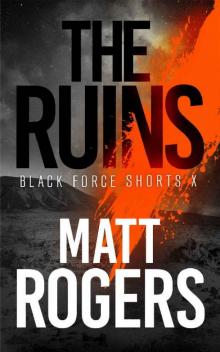 The Ruins
The Ruins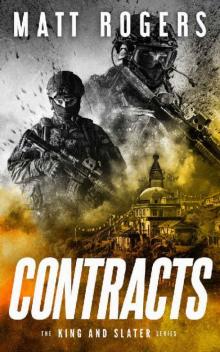 Contracts
Contracts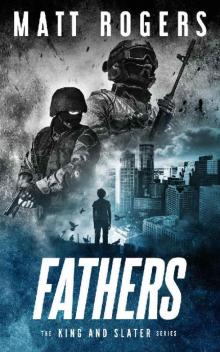 Fathers
Fathers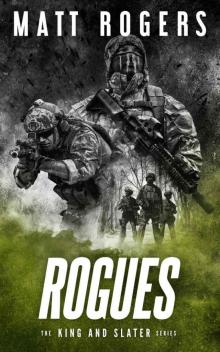 Rogues: A King & Slater Thriller
Rogues: A King & Slater Thriller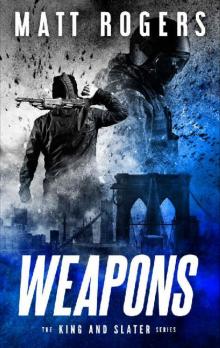 Weapons
Weapons Ciphers
Ciphers Lynx
Lynx Hunters
Hunters Of Superior Design
Of Superior Design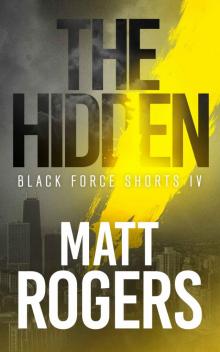 The Hidden: A Black Force Thriller (Black Force Shorts Book 4)
The Hidden: A Black Force Thriller (Black Force Shorts Book 4) Blood Money
Blood Money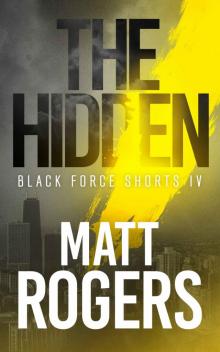 The Hidden_A Black Force Thriller
The Hidden_A Black Force Thriller Monsters
Monsters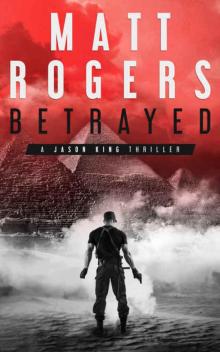 Betrayed: A Jason King Thriller (Jason King Series Book 4)
Betrayed: A Jason King Thriller (Jason King Series Book 4)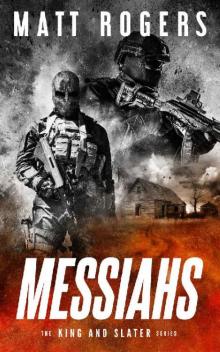 Messiahs
Messiahs The Wicked_A Black Force Thriller
The Wicked_A Black Force Thriller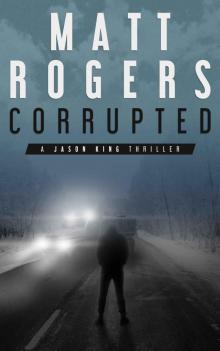 Corrupted: A Jason King Thriller (Jason King Series Book 5)
Corrupted: A Jason King Thriller (Jason King Series Book 5) The Jason King Series: Books 1-3
The Jason King Series: Books 1-3 Lion
Lion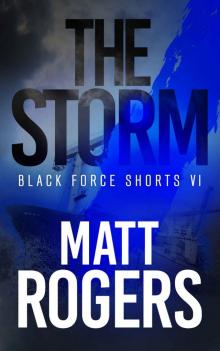 The Storm: A Black Force Thriller (Black Force Shorts Book 6)
The Storm: A Black Force Thriller (Black Force Shorts Book 6)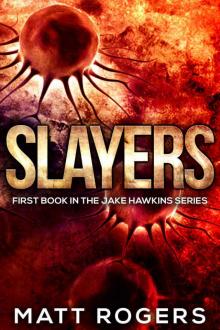 Slayers (Jake Hawkins Book 1)
Slayers (Jake Hawkins Book 1) Warrior: A Jason King Thriller (The Jason King Files Book 2)
Warrior: A Jason King Thriller (The Jason King Files Book 2)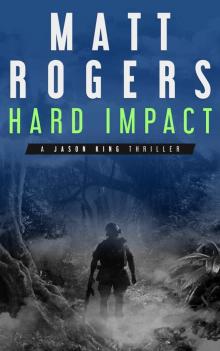 Hard Impact: A Jason King Operation (Jason King Series Book 0)
Hard Impact: A Jason King Operation (Jason King Series Book 0) The Wicked: A Black Force Thriller (Black Force Shorts Book 7)
The Wicked: A Black Force Thriller (Black Force Shorts Book 7) Warrior_A Jason King Thriller
Warrior_A Jason King Thriller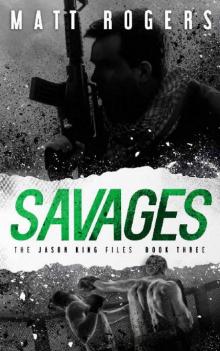 Savages: A Jason King Thriller (The Jason King Files Book 3)
Savages: A Jason King Thriller (The Jason King Files Book 3)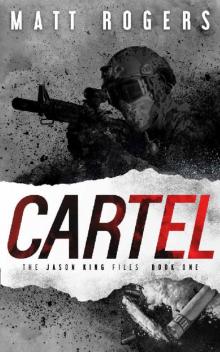 Cartel: A Jason King Thriller (The Jason King Files Book 1)
Cartel: A Jason King Thriller (The Jason King Files Book 1)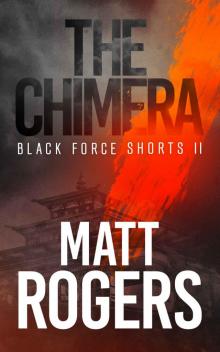 The Chimera_A Black Force Thriller
The Chimera_A Black Force Thriller The King: A Black Force Thriller (Black Force Shorts Book 8)
The King: A Black Force Thriller (Black Force Shorts Book 8)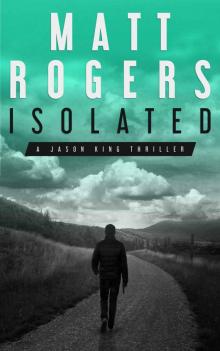 Isolated: A Jason King Thriller (Jason King Series Book 1)
Isolated: A Jason King Thriller (Jason King Series Book 1) The Victor: A Black Force Thriller (Black Force Shorts Book 1)
The Victor: A Black Force Thriller (Black Force Shorts Book 1)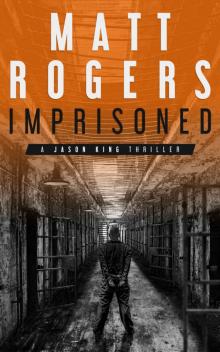 Imprisoned: A Jason King Thriller (Jason King Series Book 2)
Imprisoned: A Jason King Thriller (Jason King Series Book 2) Lion: A Will Slater Thriller (Will Slater Series Book 2)
Lion: A Will Slater Thriller (Will Slater Series Book 2)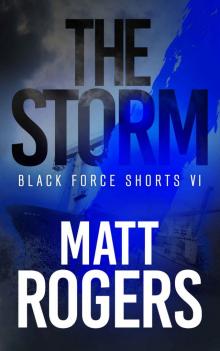 The Storm_A Black Force Thriller
The Storm_A Black Force Thriller Hunted: A Jason King Thriller (Jason King Series Book 6)
Hunted: A Jason King Thriller (Jason King Series Book 6)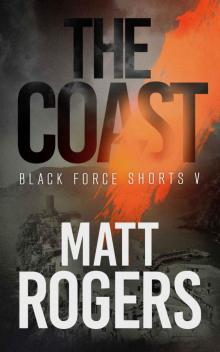 The Coast: A Black Force Thriller (Black Force Shorts Book 5)
The Coast: A Black Force Thriller (Black Force Shorts Book 5)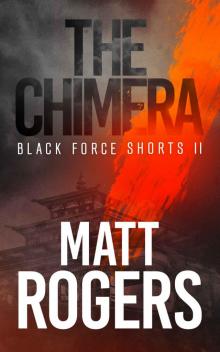 The Chimera: A Black Force Thriller (Black Force Shorts Book 2)
The Chimera: A Black Force Thriller (Black Force Shorts Book 2)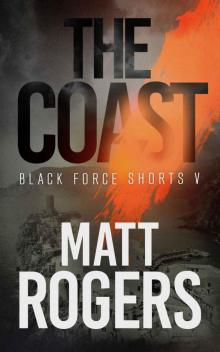 The Coast_A Black Force Thriller
The Coast_A Black Force Thriller